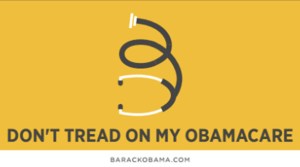Last week Flagstaff’s Arizona Daily Sun published this “feature” article and “editor’s pick” from Cronkite News Service. HHS: Arizona premiums under Obamacare almost tripled since 2013:
Health insurance premiums nearly tripled in Arizona between 2013 and 2017, the fourth-biggest increase among the 39 states that participated in healthcare.gov, according to new data from the Department of Health and Human Services.
Arizona’s 190 percent increase meant a monthly premium increase of about $400 to a consumer in the state, to $611, under the Affordable Care Act, or Obamacare. The average monthly increase for all marketplace states was 105 percent, or $244, according to the HHS numbers released this week.
But here’s the tell:
The report does not mention the tax credits that many low- and middle-income consumers received under Obamacare, which made the coverage affordable for many.
“Republicans quickly seized on the HHS numbers to support what they say is the urgent need to replace the Affordable Care Act.”
The editors of the Arizona Daily Sun really owe it to their readers to publish this explainer from the LA Times business columnist Michael Hiltzik, which puts this questionable HHS report into proper perspective. Trump’s team issues a stunningly dishonest study of Obamacare rate increases:
 The Department of Health and Human Services seemed mightily pleased with a statistic it issued Tuesday. The agency’s figures showed that premiums on the Affordable Care Act exchanges “doubled” from 2013 through this year.
The Department of Health and Human Services seemed mightily pleased with a statistic it issued Tuesday. The agency’s figures showed that premiums on the Affordable Care Act exchanges “doubled” from 2013 through this year.
This might not sound like good news for the people buying their coverage on those exchanges, but to HHS it was vindication. “This report is a sobering reminder of why reforming our healthcare system remains a top priority of the Trump administration,” agency spokesperson Alleigh Marré said.
Actually, it’s a sobering reminder of something completely different: the Trump administration’s stunning dishonesty about the ACA. That’s shown by the HHS statistic in two ways. First, the agency cherry-picked its time frame to make the premium increases under the ACA look much worse than they are. Second, the agency ignored the effect of Obamacare’s subsidies, which for many buyers has reduced the premium increases to zero.


